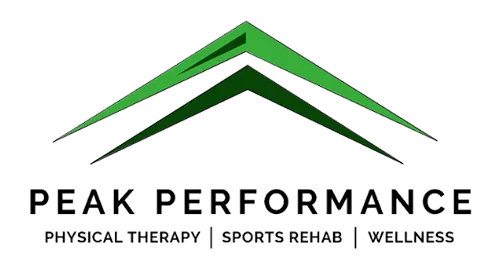Thoracic Outlet Syndrome (TOS) in Ferndale, and Detroit
What is Thoracic Outlet Syndrome(TOS)?
Thoracic Outlet Syndrome (TOS) is a condition that can cause pain, numbness, and tingling sensations in your neck, shoulder, and arm. It happens when there’s pressure on the nerves and blood vessels that pass through a narrow space between your collarbone and first rib, known as the thoracic outlet.

How Does it Happen?
TOS can occur when there’s too little space in the thoracic outlet for these important structures. This can be due to a variety of reasons, including extra ribs, muscle tightness, or injury.
How to Tell if You Have Thoracic Outlet Syndrom in Ferndale, and Detroit?
Here are some common signs and symptoms that might show you have Thoracic Outlet Syndrome:
Neck and Shoulder Pain: You may feel pain in your neck or shoulder that can sometimes spread down your arm.
Numbness and Tingling: Your arm, hand, and fingers may feel numb or tingly.
Weakness: Your arm might feel weak, and it can be challenging to hold or grip things.
Coldness and Color Changes: Your hand or fingers may turn pale or bluish, especially when it’s cold.
What Causes Thoracic Outlet Syndrome?
TOS can happen for different reasons:
- Anatomy: Some people are born with an extra rib or muscle that narrows the thoracic outlet.
- Injury: An accident or injury, like a car crash or repetitive arm movements, can lead to TOS.
- Poor Posture: Slouching or having poor posture can increase the risk of developing TOS.
Types of TOS in Ferndale, and Detroit
There are different types of TOS, including:
- Neurogenic TOS
This type affects the nerves and can cause symptoms like numbness and tingling.
- Vascular TOS
Vascular TOS affects the blood vessels and can cause coldness and color changes in the hand.
- Nonspecific TOS
Some people may have TOS without clear nerve or blood vessel involvement.
How Can TOS Be Treated?
The treatment for TOS depends on the type and severity of the condition. Here are some common approaches:
- Physical Therapy
Physical therapy exercises and stretches can help relieve symptoms and improve posture.
- Medications
Pain relievers or muscle relaxants may be prescribed to manage pain and discomfort.
- Lifestyle Changes
Improving posture, avoiding activities that worsen symptoms, and practicing relaxation techniques can be helpful.
- Surgery
In severe cases, surgery may be necessary to relieve pressure on the affected nerves or blood vessels.
What to Expect During Recovery
Recovering from Thoracic Outlet Syndrome can be a unique experience for each individual, depending on the type and treatment. Here’s what you can anticipate as you work toward improvement:
Physical Therapy Progress: With consistent effort, physical therapy can lead to gradual improvements in muscle strength, posture, and mobility, reducing discomfort and enhancing your overall well-being.
Medications and Symptom Relief: Medications prescribed by your healthcare provider can help manage pain and discomfort, allowing you to feel more comfortable as you progress.
Embracing Lifestyle Adjustments: Over time, implementing lifestyle changes, such as ergonomic enhancements in your workspace, reduced strain-inducing activities, and the adoption of relaxation practices, can contribute to your overall recovery.
Surgery Recovery and Regaining Functionality: If surgical intervention is necessary, your commitment to post-operative care and rehabilitation programs will play a vital role in optimizing your recovery and regaining full functionality.
Can TOS Be Prevented?
While not all cases of TOS can be prevented, there are steps you can take to reduce your risk:
Maintain Good Posture: Practice proper posture when sitting, standing, and working on the computer.
Stretch and Exercise: Regularly stretch and strengthen your neck and shoulder muscles.
Take Breaks: If you have a desk job or do repetitive tasks, take breaks to change your position and stretch.
In Need of Thoracic Outlet Syndrome Services?
In conclusion, Thoracic Outlet Syndrome is a condition that can cause pain and discomfort in your neck, shoulder, and arm. It can affect anyone, and the severity varies from person to person.
If you suspect you have TOS or are experiencing symptoms, it’s essential to see a healthcare provider for a proper evaluation and diagnosis.


